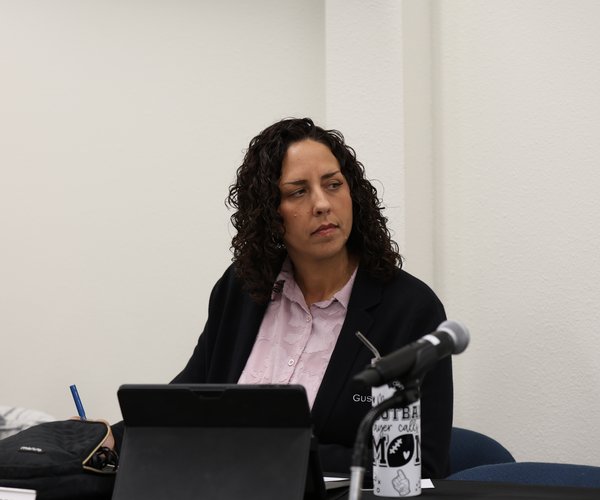Rich Ford will continue being mayor pro tem for Gustine after the city council voted unanimously to extend his term during last Tuesday’s city council meeting.
Ford - named mayor pro tem in January 2023 - will continue his term until December 2026. Before Ford, Derek Alexander took over as Gustine’s Mayor Pro Tem in January 2021.
While this is nothing new for Ford, he understands his responsibilities as mayor pro tem which includes presenting the agenda and keeping the meeting in order while having a large crowd present in the council chambers.
“You kind of learn how to function of the meetings, Robert’s Rules of Orders, processes of the meeting and then, bringing forward the agenda, trying to keep the meeting moving, not getting hung up on some issues that get repetitive and especially, if you have a big crowd in the meeting room, you don’t want to keep going over and over and over, making the same comments, you try to keep things moving. I think that’s the most difficult part of being [Mayor Pro Tem],” Ford said.
In certain cases, individuals who were previously the mayor pro tem would serve one or two terms but Ford is an anomaly.
Ford was not only the mayor pro tem, but he was also the mayor of Gustine, each of which occurred three separate times. Ford first became the mayor pro tem from 1988 to 1990 and later became Mayor of Gustine from 1990 to 1992. Two years later, he again became the town’s mayor pro tem, serving four consecutive two-year terms until 2000.
Similar to what happened following his first term as mayor pro tem, Ford became mayor again from 2002 to 2004. He later came back as Mayor of Gustine from 2006 to 2010. After Ford concluded his latest tenure as mayor, Dennis Brazil took over the reins as the town’s mayor from 2010 to 2016.
Despite having plenty of experience with being the mayor pro tem, Ford is still learning and admitted that he was getting adjusted early in his current term since this was his first time back at the position after more than 20 years. Some of the adjustments that he mentioned include getting used to an agenda that mentions more details on specific items and a public comment being available for an item after council members discussed it.
“Stepping back in, I was a little rusty. I’m going through the agenda and the processes and procedures and they do change as we go along,” Ford said. “Our agendas now are a lot different than what they used to be because they are now specific like public comment goes here and it has to be done again and again, each agenda item, approving the agendas. We didn’t used to do that … so that’s the kind of thing you got to pay attention to.”
Navtej Hundal is a freelance journalist in Stanislaus County





